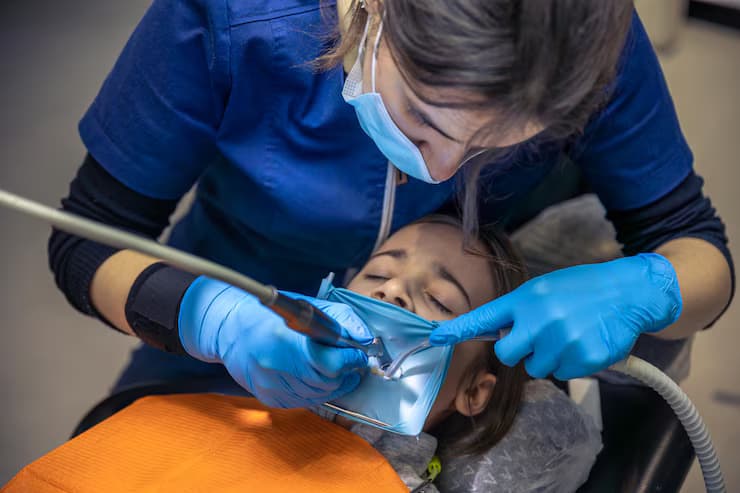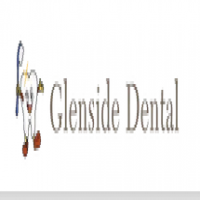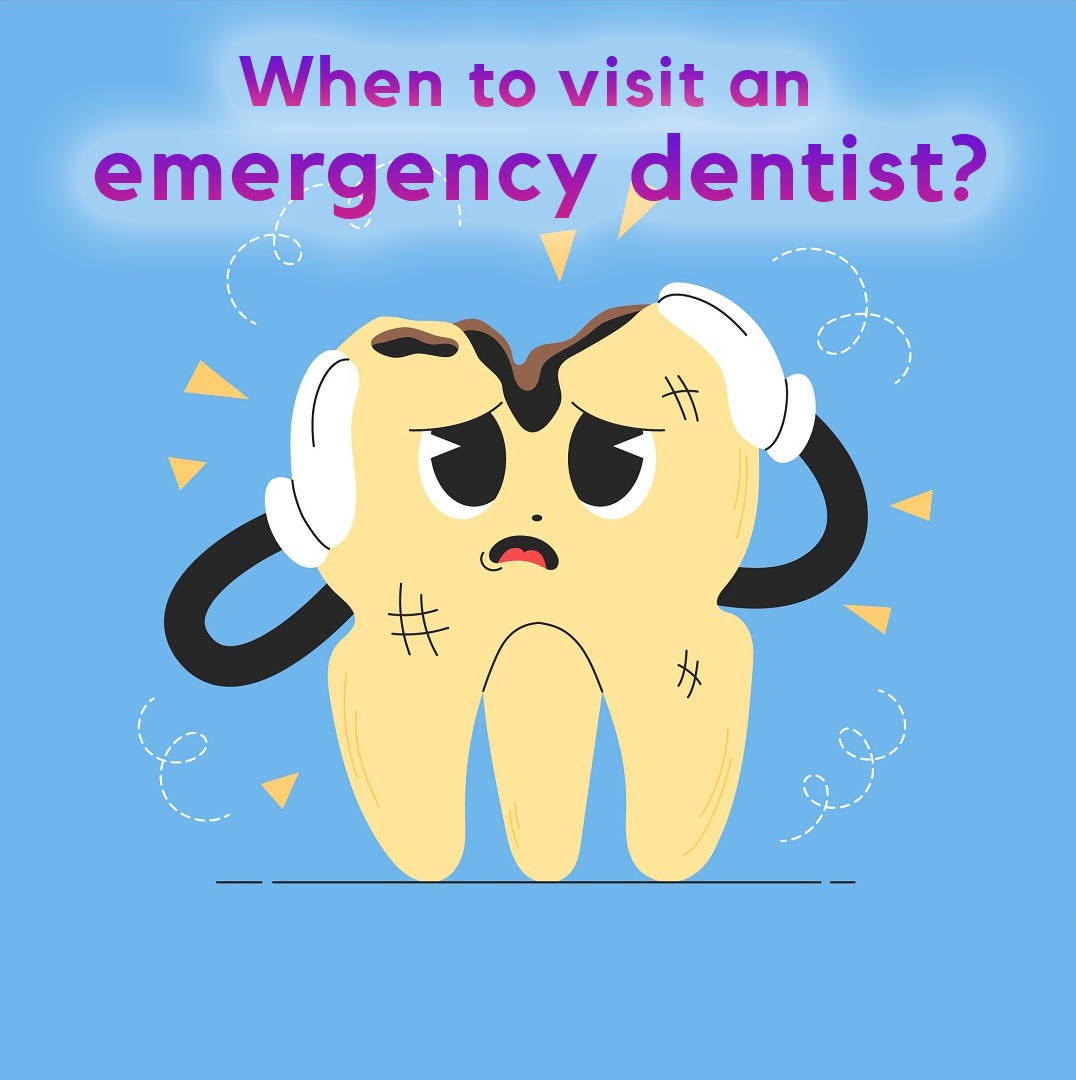Navigating Dental Emergencies: What You Need to Know

Strong 8k brings an ultra-HD IPTV experience to your living room and your pocket.
Dental emergencies can occur unexpectedly and often lead to anxiety and confusion regarding the appropriate course of action. Whether it’s a sudden toothache, a broken tooth, or a dental injury, knowing how to respond effectively is crucial for minimizing damage and ensuring the best possible outcome. This article delves into the common types of dental emergency, how to manage them, and the importance of seeking professional help promptly.
Understanding Dental Emergencies
Dental emergencies encompass a wide range of situations that require immediate attention from a dental professional. Recognizing the signs and symptoms of a dental emergency is vital for effective treatment. There are several scenarios that typically fall under this category:
Severe Toothache: A toothache that persists and is accompanied by swelling, fever, or drainage may indicate an underlying issue such as an infection or abscess. This type of pain should not be ignored, as it can worsen and lead to more significant complications.
Knocked-Out Tooth: Traumatic injuries, such as falls or sports accidents, can result in a tooth being knocked out completely. This is a critical situation that necessitates immediate action to increase the chances of saving the tooth.
Broken or Chipped Tooth: Accidents can also lead to a broken or chipped tooth. Depending on the severity of the damage, this may require urgent care to prevent further harm and restore the tooth's function and appearance.
Lost Filling or Crown: Losing a filling or crown can expose the underlying tooth structure, leading to pain and increasing the risk of further decay. Prompt attention is necessary to address this issue effectively.
Gum Bleeding or Swelling: Persistent gum bleeding, especially if accompanied by pain or swelling, may indicate gum disease or another serious condition. This should be evaluated by a dental professional as soon as possible.
Immediate Response to Dental Emergencies
When faced with a dental emergency, remaining calm and taking appropriate steps can significantly impact the outcome. Here are some general guidelines to follow for common dental emergencies:
1. Severe Toothache: Rinse the mouth with warm salt water to help reduce inflammation and clean the affected area. Over-the-counter pain relievers can provide temporary relief, but it is important to schedule an appointment with a dentist as soon as possible to determine the underlying cause.
2. Knocked-Out Tooth: If a tooth is knocked out, it is crucial to act quickly. Handle the tooth by the crown, avoiding touching the root. Rinse it gently with water to remove any debris, but do not scrub it or use soap. If possible, place the tooth back into its socket without forcing it. If reinsertion is not feasible, store the tooth in a container of milk or saline solution and seek dental care immediately.
3. Broken or Chipped Tooth: Rinse the mouth with warm water and apply a cold compress to reduce swelling. If there is pain, over-the-counter pain relief may be used. Schedule an appointment with a dentist to assess the damage and discuss treatment options, which may include bonding, crowns, or other restorative procedures.
4. Lost Filling or Crown: If a filling or crown falls out, clean the area gently with warm water and avoid chewing on that side of the mouth. If there is discomfort, a temporary dental cement can be used to cover the exposed area until a dentist can provide a permanent solution.
5. Gum Bleeding or Swelling: Rinse the mouth with warm salt water and apply a cold compress to the outside of the mouth if swelling is present. If bleeding persists or is severe, seek immediate dental care to evaluate the cause and receive appropriate treatment.
The Importance of Prompt Dental Care
Seeking prompt dental care during an emergency is crucial for several reasons. First, timely intervention can prevent further complications and preserve the health of the affected tooth or surrounding structures. For instance, addressing an infection quickly can prevent it from spreading to other areas of the body.
Second, immediate care can alleviate pain and discomfort. Dental emergencies often come with significant pain, and professional treatment can provide relief and restore normal function. Delaying treatment can lead to increased pain and more complex procedures later on.
Moreover, addressing dental emergencies promptly can save money in the long run. Early intervention may help avoid more extensive treatments that could arise from neglecting an emergency situation. For example, a minor cavity that leads to an abscess may ultimately require a root canal if not treated in a timely manner.
Preventive Measures to Avoid Dental Emergencies
While it is impossible to predict when a dental emergency may occur, there are several preventive measures that individuals can take to reduce their risk:
Regular Dental Check-Ups: Routine visits to the dentist for examinations and cleanings can help identify potential issues before they escalate into emergencies. Dentists can detect cavities, gum disease, and other problems early, allowing for timely intervention.
Wear Protective Gear: For individuals involved in contact sports or activities that pose a risk of dental injury, wearing a mouthguard can significantly reduce the likelihood of tooth damage.
Practice Good Oral Hygiene: Maintaining a consistent oral hygiene routine, including brushing twice a day and flossing daily, can help prevent cavities and gum disease, reducing the risk of emergencies.
Avoid Dangerous Habits: Chewing on hard objects, such as ice or pens, can lead to broken teeth. Additionally, using teeth to open packages or bottles can cause unnecessary damage.
Address Dental Issues Promptly: If any dental discomfort arises, it is essential to consult a dentist promptly rather than waiting for the issue to worsen. Early intervention can prevent emergencies from developing.
Conclusion: Empowering Patients Through Knowledge
In summary, dental emergencies can arise unexpectedly and require immediate attention to prevent further complications. Understanding the common types of emergencies, knowing how to respond effectively, and seeking prompt professional care can significantly impact outcomes. By prioritizing preventive measures and maintaining regular dental visits, individuals can reduce their risk of experiencing dental emergencies. For expert care and guidance in managing dental emergencies, Glenside Dental is committed to providing exceptional service to help patients achieve and maintain optimal oral health. Empowering oneself with knowledge about dental emergencies is a vital step toward ensuring a healthy and confident smile.
Note: IndiBlogHub features both user-submitted and editorial content. We do not verify third-party contributions. Read our Disclaimer and Privacy Policyfor details.







